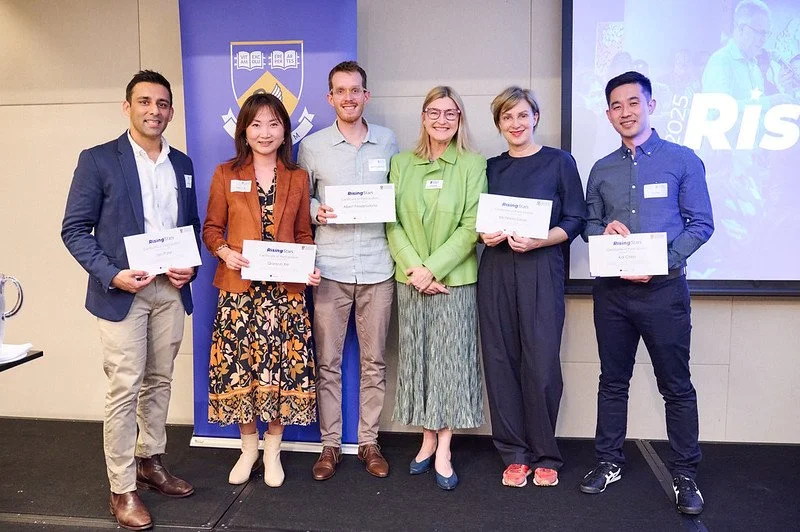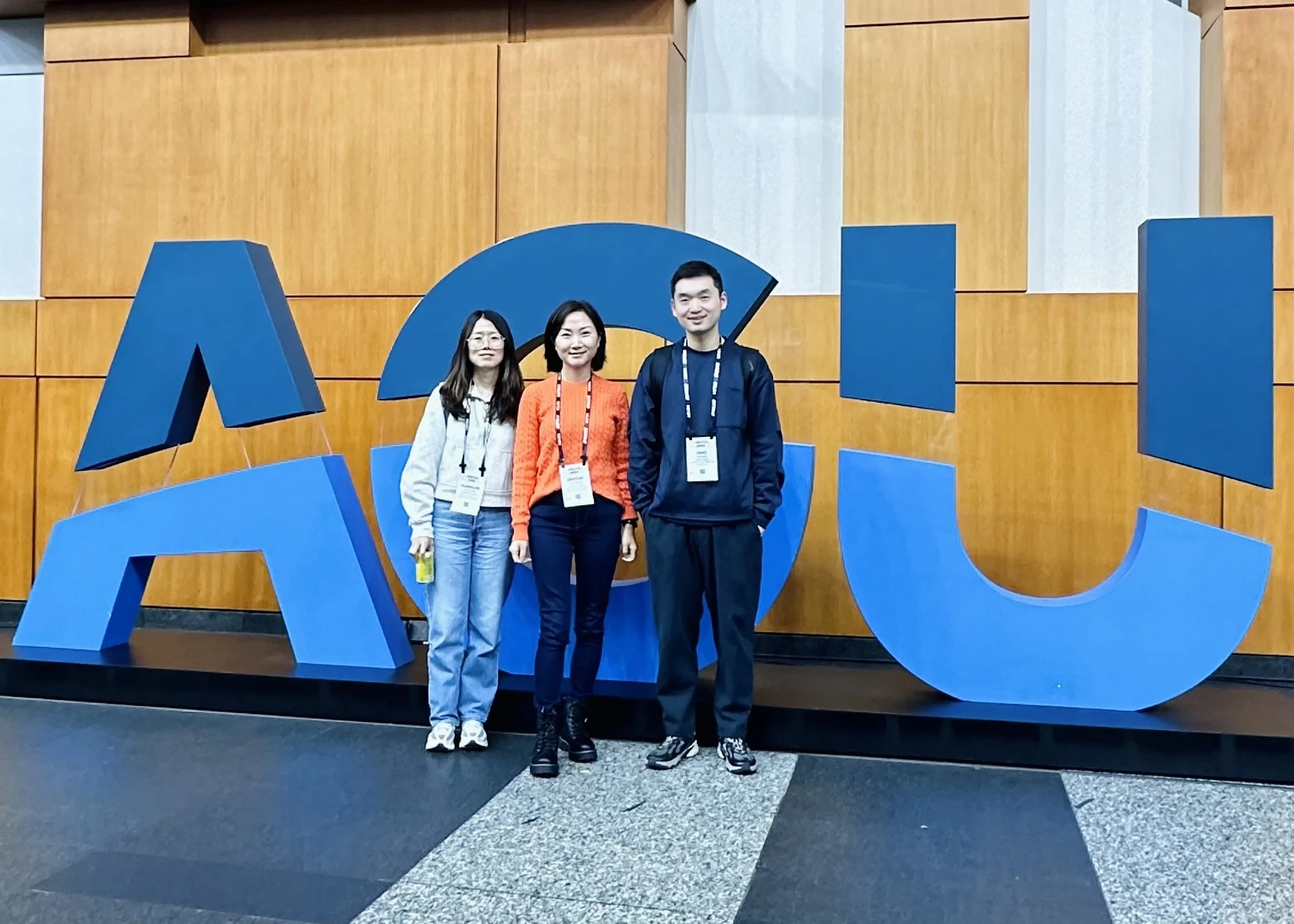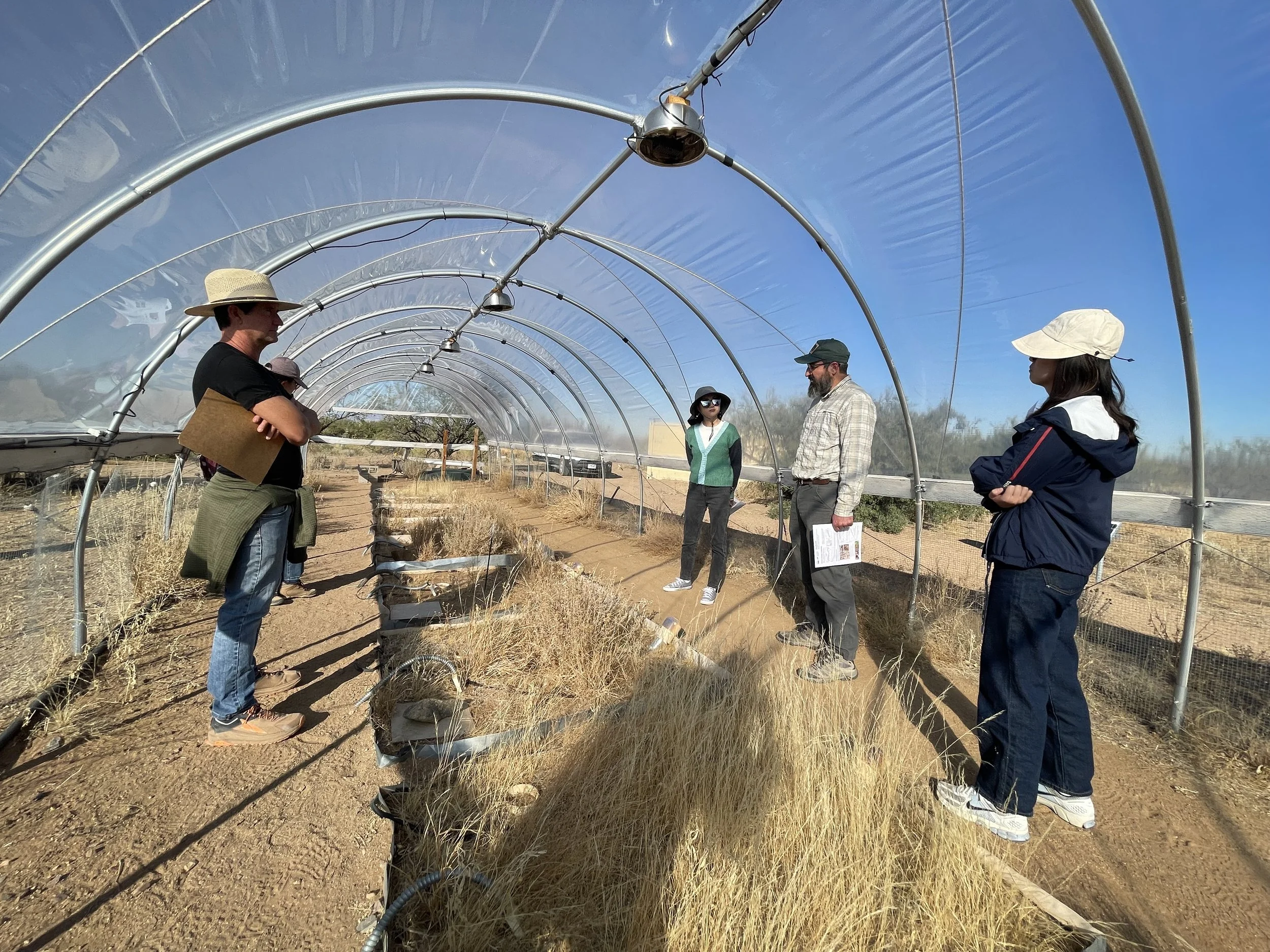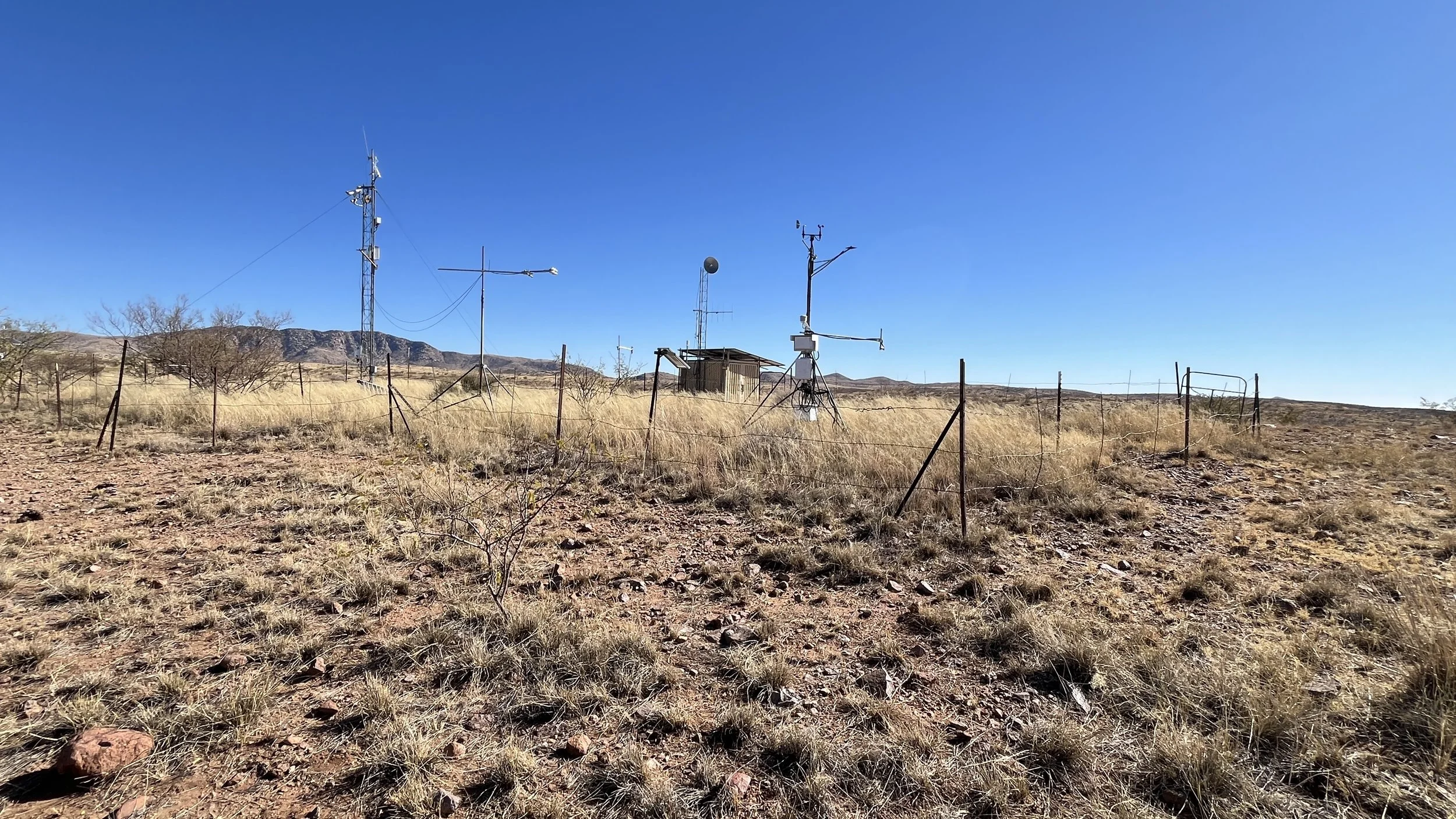The UWA Rising Stars event
“Rising Stars – UWA's much-loved research competition – provides a rare opportunity for early career researchers to showcase their ground-breaking work to an audience ready to pledge their support. Rising Stars is a powerful show of community belief in bold ideas and the power of collective giving to make them happen. It is a lasting contribution that translates into meaningful impact across health, climate resilience, biodiversity, technology and beyond.” — quote from UWA Research Announcements.
In 2025, the lab PI Dr Xie had the privilege to be one of the five presenters at the UWA Rising Stars event. Dr Xie pitched her research ideas of using remote sensing to monitor and assess vegetation changes in southwestern Australia, the only biodiversity hotspot of Australia on the world map. All participants received training in science communication and were each allowed to bring a team member. Dr Xie teamed up with PhD student Yang Chen and was grateful for the lab’s presence and enthusiasm at the event.
The lab attends AGU24 conference
In December 2024, The X Lab PI Dr. Xie and PhD students Huanhuan Wang and Yang Chen attended AGU24 conference and enjoyed the science event with 27,000 other attendees! We delivered these presentations:
Satellite-observed shifts in C3/C4 abundance in Australian grasslands are associated with rainfall patterns (Oral presentation). See relevant publication here.
Ecogeographic Characteristics of Wet Year Productivity Drive Subsequent Positive Legacy Effects in Australian Drylands (Oral presentation). See relevant publication here.
Ecosystem Resistance and Resilience to Water Stress Along a Rainfall Gradient in Australia (Poster presentation). See relevant publication here.
The lab visits collaborators in Arizona, US
In December 2024, The X Lab PI Dr. Xie and PhD students Huanhuan Wang and Yang Chen visited Arizona, US as part of the University of Western Australia Research Collaboration Award project “Piloting a novel geospatial approach to assess climate change impacts on grasslands.”
At the University of Arizona in Tucson, hosted by Prof. Bill Smith, Dr. Joel A. Biederman, and Dr. Dana A. Lapides, we visited Bigelow, Santa Rita Mesquite, and Walnut Gulch flux tower sites and the RainManSR experimental site, a manipulative rainfall temporal repackaging experiment that investigates how variations in rainfall frequency and intensity, under equal total precipitation, influence the structural and functional dynamics of dryland grassland and shrubland ecosystems. The RainManSR site has been a source of high-impact and influential research (e.g. https://doi.org/10.1111/nph.70431, https://doi.org/10.1111/pce.15175, https://doi.org/10.1111/1365-2435.13980).
At Arizona State University, we visited the Global Drylands Center led by Prof. Osvaldo Sala, where we discussed how dryland ecosystems respond and acclimate to increasing aridity under climate change, and explored opportunities for future international collaboration linking Australian and U.S. drylands.
Conference Poster Award
In 2024, PhD student Yang Chen received a Royal Society of Western Australia 4th Symposium Best Student Poster Award ($1,000) for his poster entitled “Biological Memory Dominates the Legacy of Extreme Wet Years in Australian Dryland Productivity“.
WAARC PhD Scholarship award
In 2024, Yusi was awarded a top up scholarship ($25,000/year) from Western Australia Agriculture Research Collaboration and a Research Training Program (RTP) scholarship ($37,000/year) from The University of Western Australia.
Travel grant awards
In 2024 and 2025, PhD student Huanhuan Wang and PhD student Yang Chen were awarded a travel grant ($2,000) from The University of Western Australia Data Institute.












